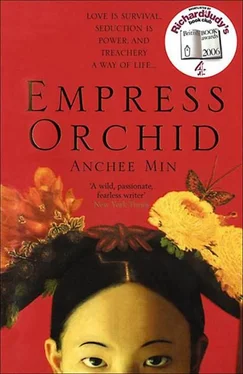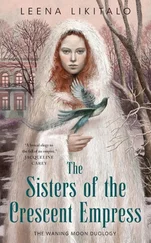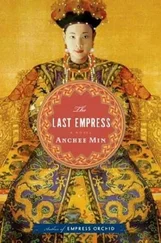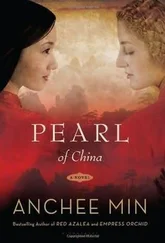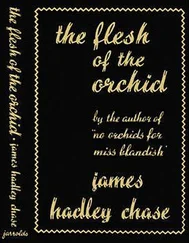“There is nothing to worry about, Prince Yee.”
“But who will that be?”
I saw Su Shun stepping forward, and I decided to seal the moment. “Prince Ch’un will take over the military obligation,” I said, looking away from Su Shun. He seemed desperate to speak, and I was afraid he would get Nuharoo’s attention. “Prince Ch’un hasn’t been assigned a duty.” I held Nuharoo with my eyes. “He will be perfect for the job, don’t you think?”
“Yes, Lady Yehonala,” she said.
“Prince Ch’un!” I called.
“Here.” Prince Ch’un’s answer came from a corner of the room.
“Will this arrangement suit you?”
“Yes, Your Majesty.” Prince Ch’un bowed.
Prince Yee’s expression changed to show regret for what he had done to himself.
To bolster him I said, “However, we would like Prince Yee to resume his full responsibility once we reach Peking. His Young Majesty can’t do without him.”
“Yes, of course, Your Majesty. Thank you!” Prince Yee was a happy man again.
I turned to Nuharoo. “I believe that is all for this audience?”
“Yes, we must thank Grand Councilor Su Shun for doing a fine job of planning.”
OCTOBER 10 was an auspicious day as Hsien Feng’s coffin was borne aloft on the shoulders of 124 bearers. At the departing ceremony, Nuharoo and I wore elaborate mourning robes hung with stone ornaments. Our head and shoulder pieces, belts and shoes weighed more than twenty-five pounds. Golden beads dangled in front of my eyes like a curtain, and my earrings were pieces of jade carved with the word tien, “in memory.” My ears stung and my back ached from all the weight. Because we had run out of coal we had not bathed for weeks. My scalp itched. The oil I used on my hair attracted dust that ended up beneath my fingernails from all my scratching. It was hard to look like an image of grace under such circumstances.
Nuharoo felt sorry for my low manners and purposely set herself as an example for me to follow. I admired her endurance when it came to her appearance. I was sure she sat upright even on the chamber pot. I surmised that she had carried the same stiffness to Hsien Feng’s bed. As far as lovemaking went, the Emperor was a man who welcomed creativity. Nuharoo had probably offered him the standard pose from The Imperial Chamber Activity Menu and expected him to deliver his seeds.
One could always count on Nuharoo’s makeup to be painted to the finest detail. She had two nail stylists, trained in grain carving, who could render entire landscapes and architectural paintings on her nails. One needed a magnifying glass to fully appreciate the artistry. Nuharoo knew exactly what she wanted. Inside her mourning robe she contin-ued to wear the dress that she had made up her mind to die in. It was so dirty that the edge of its collar was gray with grease.
We walked through a forest of colorful umbrellas and pavilion-shaped silk tents. We inspected the cortege and burned incense. Finally we poured wine, inviting the coffin to be on its way. The procession set out down the wild passes from Jehol toward the Great Wall.
The coffin had been finished with forty-nine layers of paint. It was rose red with patterns of gold dragons on it. A division of ceremonial guards led the way. The coffin was suspended in the air on a giant red frame. In the middle of the frame was a matching pole with a nine-by-eighteen-foot flag emblazoned with a golden dragon breathing flames. There was also a pair of copper wind bells. Behind the dragon flag were one hundred flags with the images of powerful animals such as bears and tigers.
Following the flags were empty palanquins for the spirits. The chairs were of different sizes and shapes and were fabulously decorated. The seat covers were made of leopard skin. A large yellow umbrella draped with white flowers followed each chair.
Eunuchs in white silk gowns held trays with incense burners. Behind them followed two bands, one with brass instruments, the other with strings and flutes. When the bands started to play, white paper money was fired into the air, which rained down from the sky like snowflakes.
Nuharoo, Tung Chih and I walked past lamas, monks and painted ceremonial horses and sheep before climbing into our palanquins. The sound of Tibetan trumpets and beating drums was so loud that I couldn’t hear my own voice when speaking to Tung Chih. He didn’t want to sit alone, and I told him that he had to for the sake of formality. Tung Chih pouted and asked for his red-eyed rabbit. Happily, Li Lien-ying had it with him. I promised Tung Chih that Nuharoo or I would join him as soon as we were able to.
The procession divided into two parts at the foot of the Great Wall, with the Parade of Happiness leading the way and the Parade of Sorrow following several miles behind.
By afternoon the weather had changed. Rain began to fall and then became heavy. For the next five days our procession stretched into a longer and longer column. It toiled its way through mud lashed up by the persistent downpours. For the first time in her life Nuharoo lost control of her makeup. In frustration she blamed it on her mirror-on-legs maids, who were too tired to steady the mirror. I felt sorry for the maids. The window-sized glass was too big and heavy for them.
According to the scouts, the mountain gorges were swarming with bandits. My mind grew with worry about what the future might bring us in the next hour. Under cover of the rain anyone could strike.
Because the Imperial astrologer had all of the dates calculated, there was no thought of stopping, however wet the bearers became. The rain continued to pour. I imagined the hardship of the eunuchs who carried the wooden furniture. Unlike coffin bearers, who had been physically trained, the eunuchs were delicate houseplants. They were accustomed to life in the Forbidden City and many of them were still in their early teens.
I fell asleep in the palanquin and had a strange dream. I was entering the sea like a fish. Swimming, I went into a hole inside a cave buried deep in the seabed. Around the edges of the hole were thick thorns. My skin was badly scratched by the thorns, and the water around me became pink. I could hear the sound of passing boats above and feel the current swirling by. I flipped up and down in terrible pain trying to get away from the thorns.
It was dawn when Li Lien-ying woke me. “The rain has stopped, my lady, and the astrologer said that we can now safely rest.”
“Were we in water?” I asked.
He paused for a moment, then replied, “If you were a fish, my lady, you have survived.”
My chair was let down and I got out. My body felt like it had been beaten. “Where are we?”
“A village called Spring Ripples.”
“Where is Tung Chih?”
“His Young Majesty is with Empress Nuharoo.”
I went to find them. They had fallen behind by about half a mile. Nuharoo insisted on changing palanquin bearers. Instead of blaming the slippery roads, she blamed the bearers.
Nuharoo told me that she had also had a dream. It was the opposite of mine. In her dream she found herself in a peaceful kingdom, and her mirror was the size of a wall. The kingdom was hidden in the deepest recesses of a mountain. A Buddhist with a floor-length white beard had led her to this place. She was worshiped, and her subjects all walked with white pigeons on their heads.
After some fuss Tung Chih agreed to leave Nuharoo’s tent-sized palanquin and came to sit with me. “Only for a short while,” he said.
I tried not to let my son’s growing attachment to Nuharoo bother me. He was one of the few things left in my life that could bring me true happiness. So much about me had changed since my entering the Imperial household. I no longer said “I feel good today” upon waking in the morning. The cheerful songs I used to hear inside my head had all been silenced. Fear lived in the backyard of my mind now.
Читать дальше
